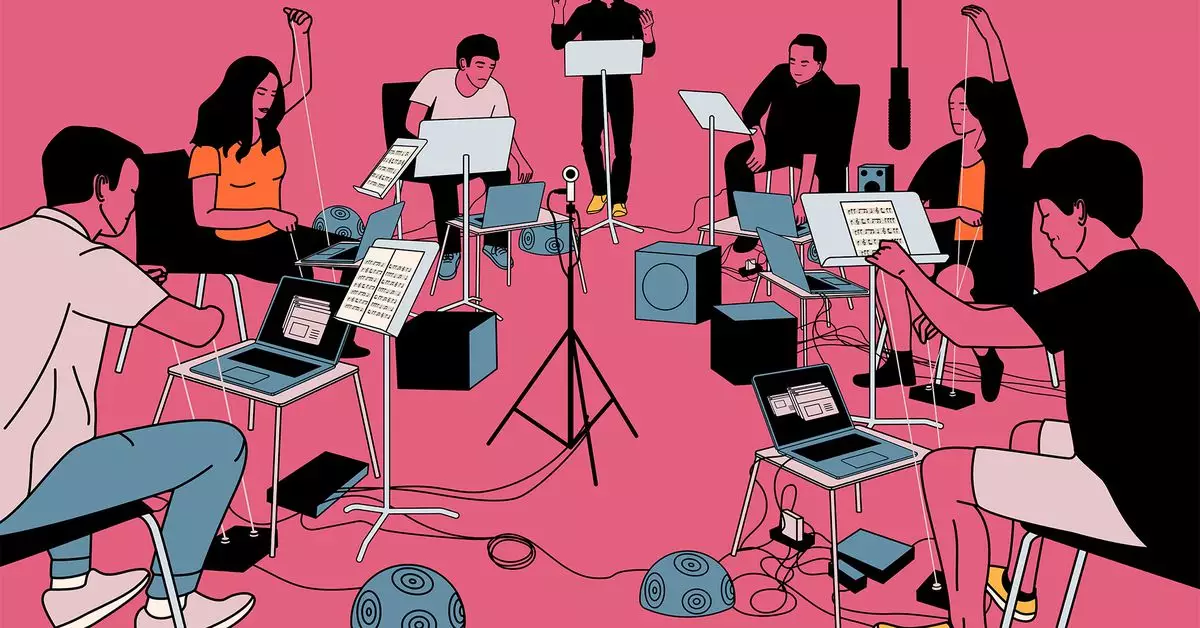Ge Wang is a name synonymous with innovation in the realm of computer music. As an associate professor at Stanford University’s Center for Computer Research in Music and Acoustics, Wang’s approach to music-making diverges significantly from conventional methods. While most musicians utilize computers merely as tools to produce sound, Wang transforms the concept of music into a digital ecosystem, where computers generate what he refers to as “computer music.” This distinction highlights a deeper engagement with technology, where creative possibilities are embraced rather than merely facilitated.
Wang’s background is particularly impressive; he does not just teach but also leads Stanford’s renowned Laptop Orchestra, a groundbreaking initiative that brings together the principles of acoustics and digital sound in a collaborative performance setting. As a co-founder of the music app Smule and the creator of the programming language Chuck, which converts code into sound, Wang’s contributions have reshaped the landscape of music technology. His multifaceted expertise allows him to explore and push the boundaries of musical expression through code.
Teaching Creativity in an Age of AI
In a recent discussion featured on The Vergecast, part of a mini-series on the future of music, Wang shared his educational philosophy regarding technology. He advocates for teaching students to “play” with technology instead of treating it as a rigid tool to be mastered. This philosophy is particularly pertinent in the context of artificial intelligence, which is rapidly infiltrating creative fields. Rather than merely employing AI to enhance efficiency, Wang suggests that toolmakers should focus on fostering an environment where experimentation and exploration can thrive.
Conversations about AI often venture into profound philosophical territory; one of the central questions that emerge from these discussions is what it truly means to be human in a world dominated by technology. As AI continues to streamline various aspects of life, from composing music to drafting emails, it raises a fundamental inquiry: is simplicity truly the aim? What happens to the intricacies of human creativity, which often thrive in the challenges and complexities of traditional artistic pursuits?
Preserving Human Essence Amidst Technological Advancement
As we integrate more sophisticated digital tools into our creative processes, we must confront the potential homogenization of art. The allure of making tasks easier could inadvertently diminish the richness of the creative journey. Wang’s insights beckon us to reflect on the nuances of our humanity. With each technological advancement aimed at convenience, what are we sacrificing in terms of expression, individuality, and the sheer joy of creation?
Ge Wang’s distinctive perspective on computer music underscores a critical dialogue about the relationship between creativity and technology. By encouraging a playful engagement with technology, he illuminates the path toward preserving our essential human experiences amidst an ever-evolving digital landscape. As we navigate this brave new world, it is essential to consider not just the tools at our disposal but what truly makes our creative endeavors meaningful.

